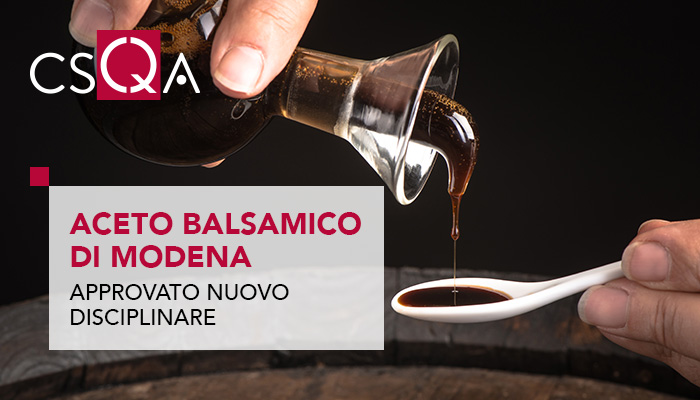
With the publication in the Official Journal of the European Union of the EU Reg. 2023/512 of the Commission, the request to amend the specification of Balsamic Vinegar of Modena is formally accepted.
After a very long process, started in December 2015, and the management of various oppositions presented at national and EU level, the Commission fully accepted the arguments and requests of the Consorzio di Tutela and MASAF.
“The process has been long and troubled – says Mariangela Grosoli, President of the Consortium – but we have finally come to an end and we can operationally implement the new regulations introduced. I thank all those who have supported us in this demanding work and, above all, the Ministry and all the officials who have played an active role in the procedure."
There are three major issues touched by the changes:
- new qualitative parameters of Aged Balsamic Vinegar of Modena;
- the expansion of the range of containers in which it will be possible to bottle the product and the expansion
- the integration of the supply chain control system.
Innovations that for the consumer mean: more choice, more quality and more guarantees.
As far as the first aspect is concerned, “ the new Regulation provides for an increase in the minimum density envisaged for Aged Balsamic Vinegar of Modena, at the same time lowering its acidity – explains Federico Desimoni, Director of the Consortium – and making it possible to add an indication of the minimum aging period of 3 years to the wording “Aged” .
An important change that we are convinced will further enhance the Aged segment, allowing us to offer a product that meets the expectations and tastes of today's consumers. This change becomes even more relevant if combined with the second novelty - continues the Director - with which even smaller bottles up to the 100 ml bottle have been introduced into the range of bottles in which the product can be marketed".
Finally, the recently approved Regulation expands the range of subjects in the supply chain subjected to the control of the certification body by adding the category of wine producers and integrates the control system by introducing isotopic analysis, an extremely effective tool for verifying the authenticity of raw materials.
The next step towards the activation of the new regulations will be that of the publication of the ministerial decree in the Official Gazette of the Italian Republic, expected in the coming weeks, and, finally, the modification of the Control Plan which will determine the entry into force and the operation of the provisions of the new regulation.